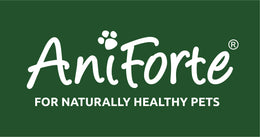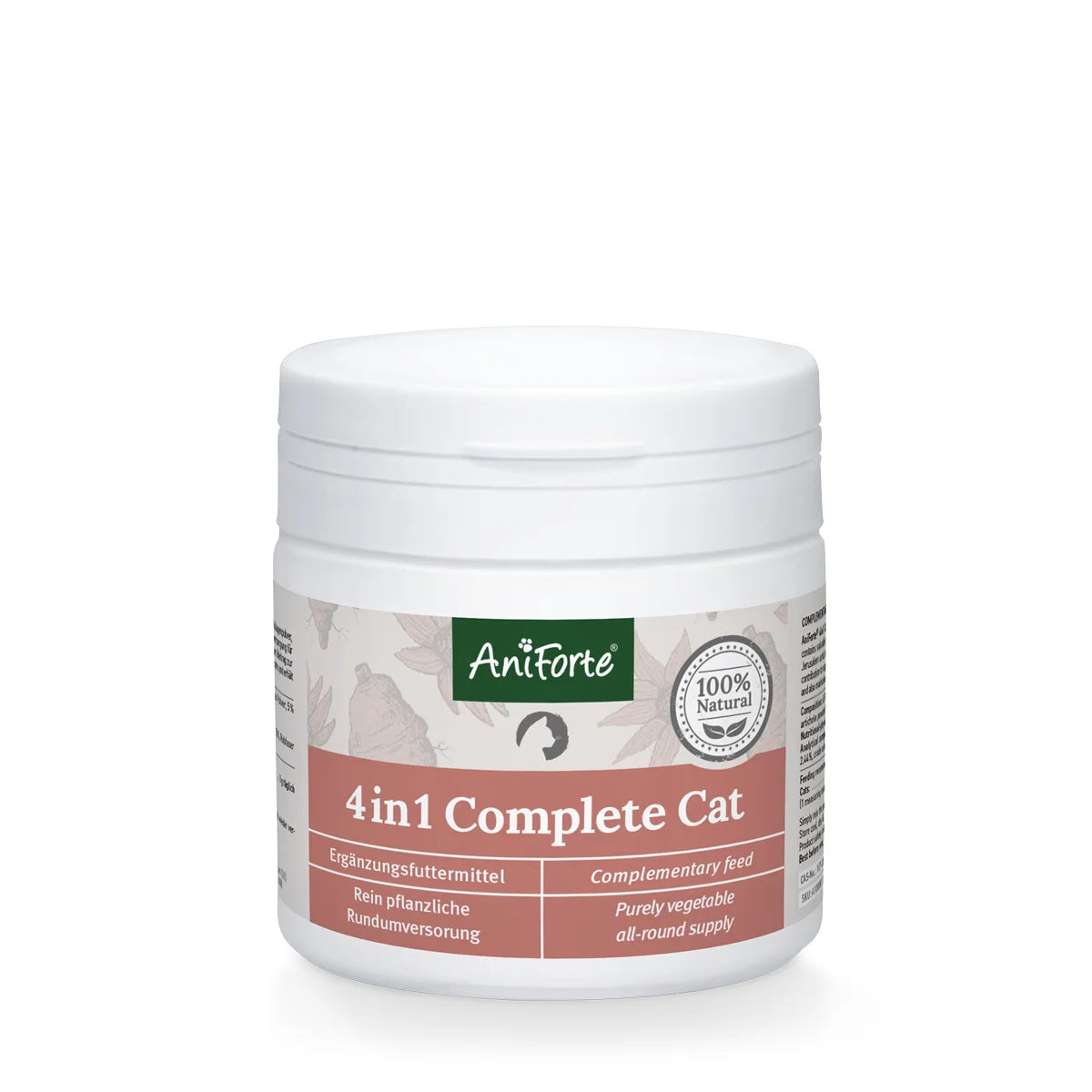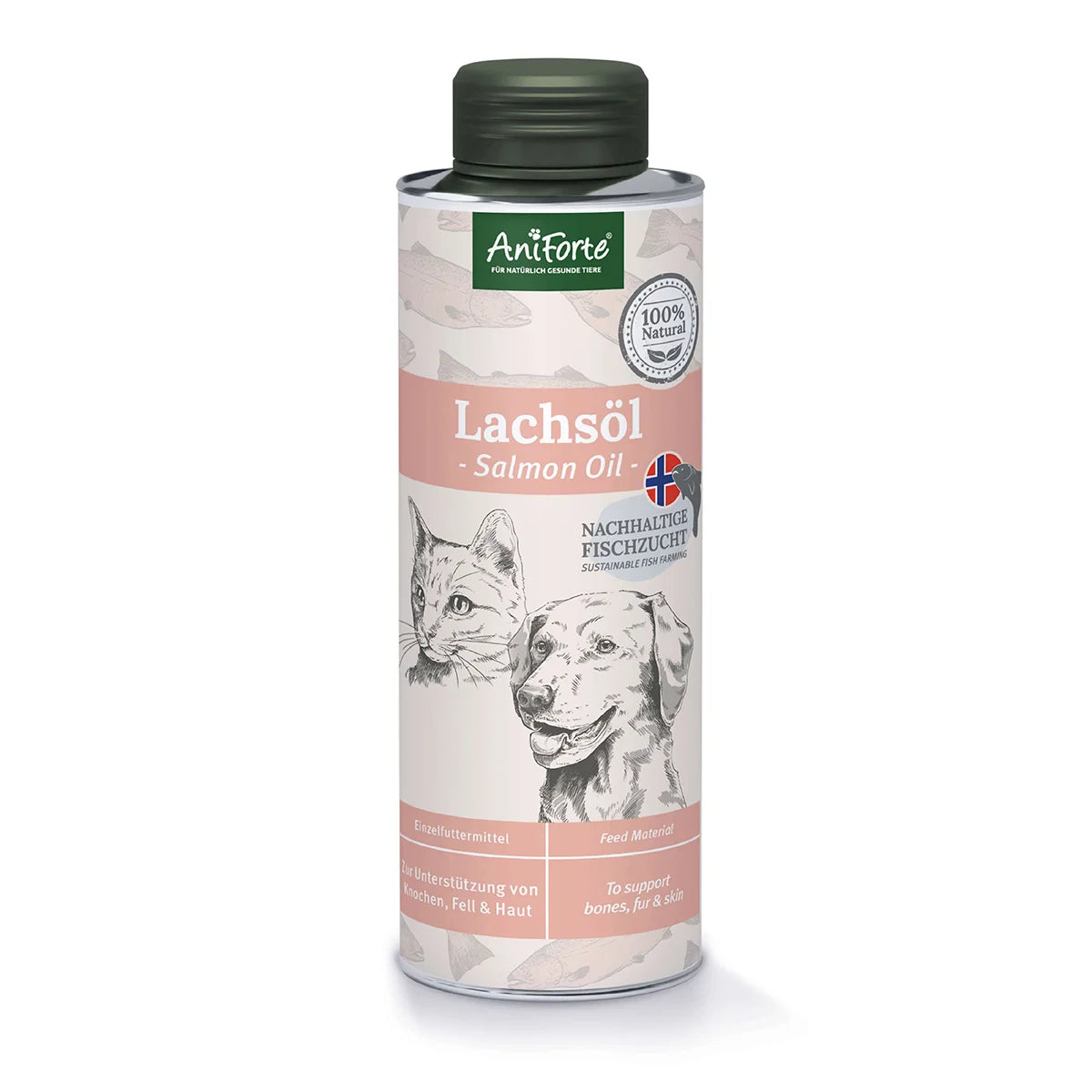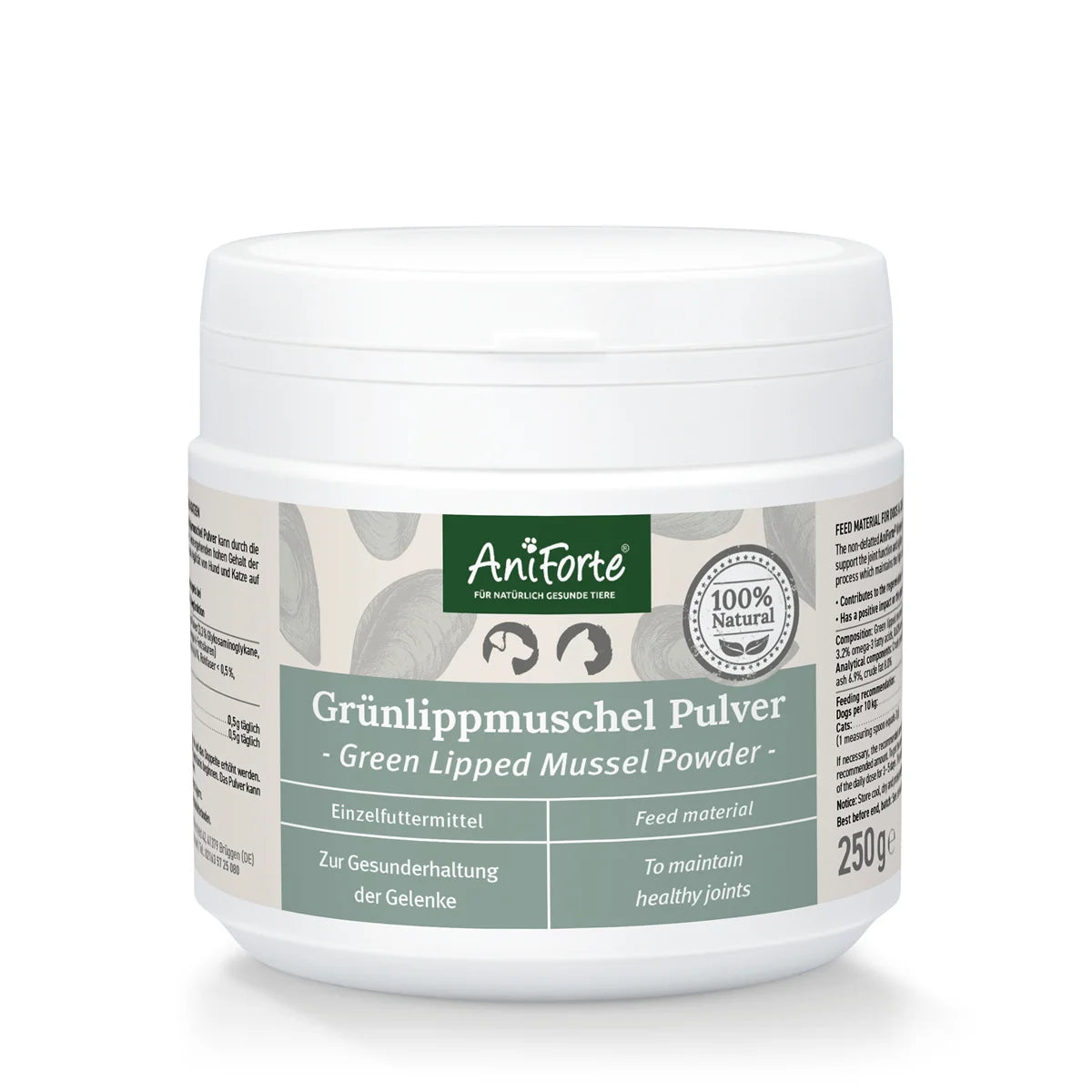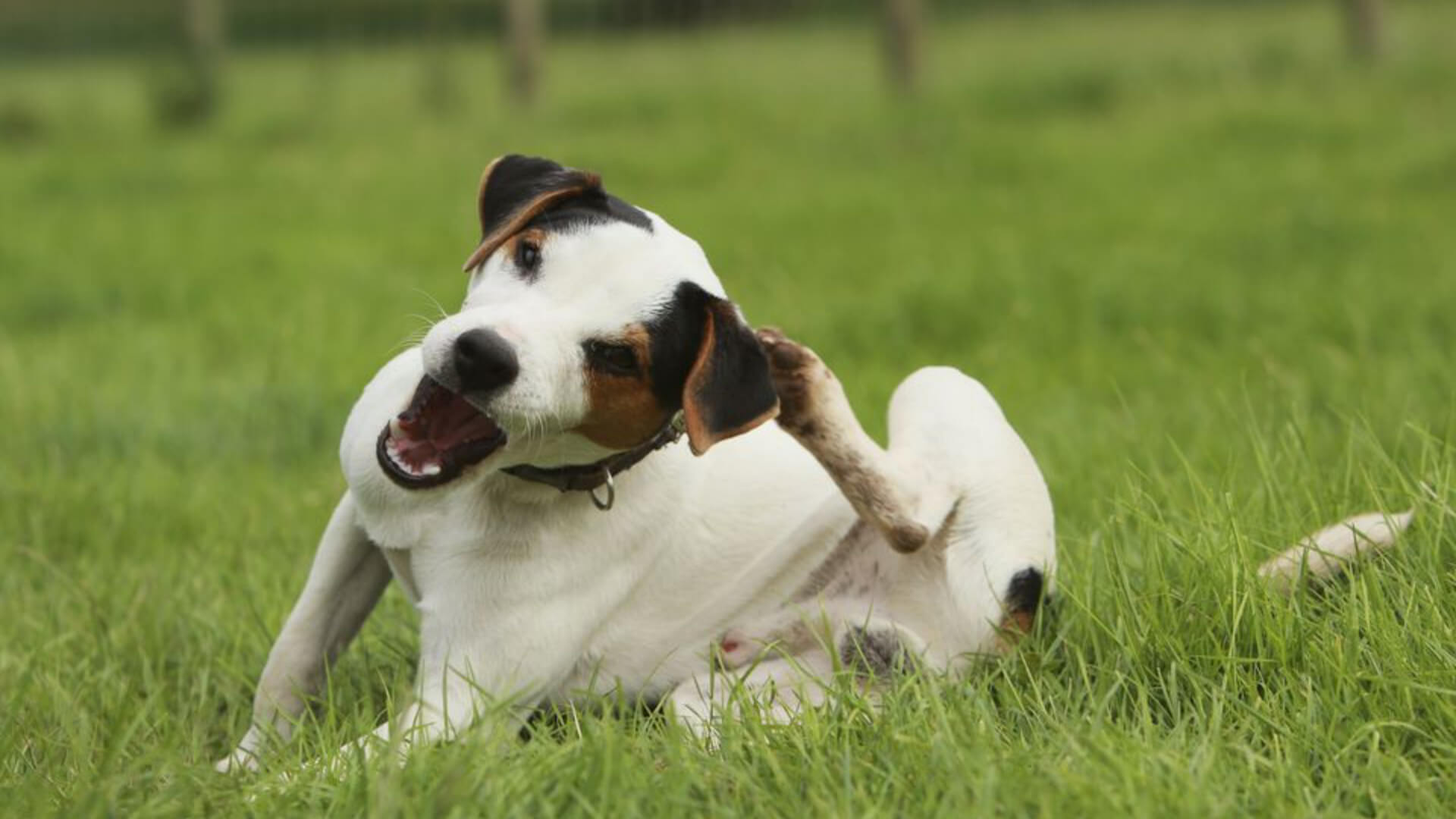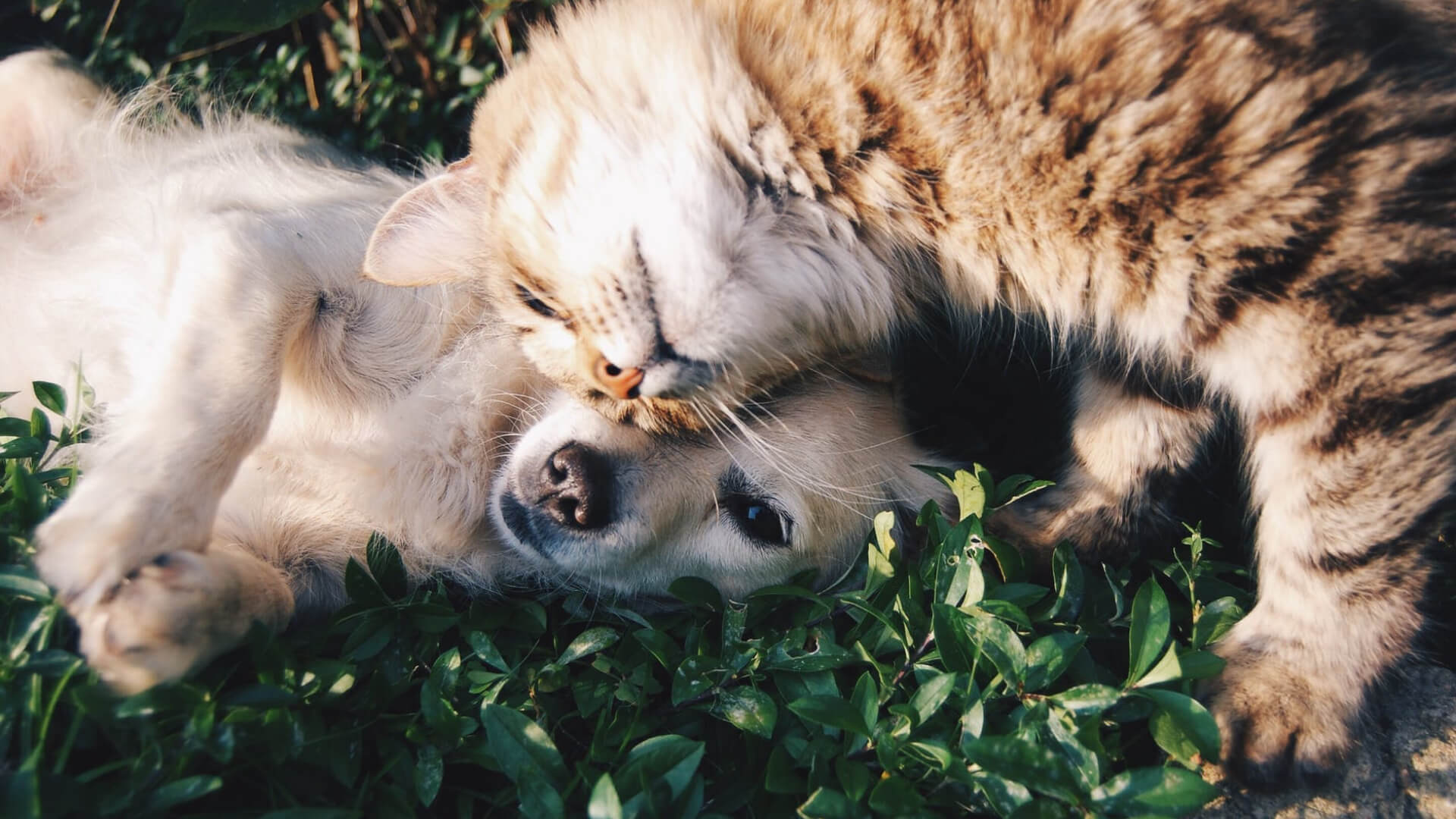 A treat here, a rewarding snack there - we all like to spoil our furry friends. Before we even realise, our pet has put on a bit too much weight. Our veterinary practitioner explains the reasons and risks of being overweight.
A treat here, a rewarding snack there - we all like to spoil our furry friends. Before we even realise, our pet has put on a bit too much weight. Our veterinary practitioner explains the reasons and risks of being overweight.Facts about obesity in dogs and cats
A few treats will not do any harm to our furry friends if they get a normal level of exercise. However, your pet will gain extra pounds over time if you overdo it. Feeding from the table is tempting, but this leads to weight gain and should be avoided. Many dogs and cats are carrying around a few extra pounds. This is particularly the case for older pets. Being overweight (obesity) is not uncommon, but unfortunately it is dangerous for your pet. So why are an increasing number of dogs and cats becoming overweight?
Reasons for obesity in dogs and cats
Your dog or cat may gain weight for a variety of reasons. It is often a combination of several factors that turn your slim, four-legged friend into a chubby one.
Some owners may not even recognise the problem and only become aware that their pet is overweight when this is pointed out by friends, neighbours or during a visit with an animal medical practitioner or vet. As a dog or cat owner, people are often surprised and shocked at the same time when the number on the scales suddenly shoots right up. Ideally, your overweight pet should be checked often to exclude potential issues, such as diseases of the thyroid gland.
Studies show that weight gain in neutered females is twice as common as in neutered males. Why? Essentially, sex hormones regulate the appetite and metabolism of your dog or cat. They inhibit the feeling of hunger and stimulate their metabolism. Neutering eliminates this influence of sex hormones. This results in an excessive appetite with reduced energy requirements. But this does not mean that every neutered animal automatically becomes overweight.
Get the portion right: Snacks in the form of treats, leftovers, i.e. cheese, pigs' ears, dried meat etc, which are fed in addition to your pet's main meal contain many calories and can pile on the pounds. It can help to remember that your pet will suffer if they are overweight. Contrary to your good intentions, you are not doing your companion any good by giving them too many treats.
As a pet owner you should consider your own approach first: Is the weight gain caused by the fact that you find it easier to feed your pet ready-made food rather than freshly prepared food?
Wet or dry food manufacturers suggest to us pet owners that our dog or our cat will be supplied with everything they need when they eat this food and that they will not suffer from nutritional deficiencies. This gives us a sense of security - feeding our furry friends with a minimum of effort makes this attitude even easier and more popular. But this way of thinking shifts responsibility to the feed manufacturers.
Dried pet food in particular, the most popular feeding method, is cheap, involves little effort and is easy to store. However, due to its low moisture levels and high carbohydrate content, dry pet food has a very high energy density. So if you feed your pet too much of it or do not provide sufficient exercise for your companion, they may quickly become overweight.
How do I prevent my pet from gaining weight?
First of all, it’s important to think about the appropriate food. Your pet will eat whatever you give them. So, work out which type of food suits you and your furry friend - while also checking the calorie content of various types of food. Check the information on the pet food packaging.
Note that the portion sizes are only recommendations and may not necessarily apply to your dog or cat. Every animal is different, so the food needs to be individually adapted. A combination of well-informed shopping and observation of your little friend is the first step towards controlling your pet's weight.
Make sure your pet gets enough exercise
The more weight your pet gains, the harder it will be for them to move. The animal will become lethargic and moves less and less. This quickly develops into a cycle. Make sure your pet gets a healthy amount of exercise each day right from the start to keep them fit and prevent excess weight gain.
Keep an eye on your pet's stomach fat
Dogs and cats are particularly vulnerable to weight gain in the chest, lumbar spine and stomach areas. When you look at the silhouette of your cat or dog, their coat often hides the real weight. Feel your pet's ribs to check how much stomach fat they really have. If you can feel them by placing your hand on their side and pressing lightly, their weight is normal. If you can no longer feel the ribs, you'll need to take action.
Health risks due to obesity
In today's society, where the obsession with being slim does not only apply to humans but also animals, it’s important to mention that being overweight is not just an aesthetic problem. In fact, your pet's weight gain often also poses a health risk. For example, your pet may develop long-term joint erosion or diabetes. The following health issues often develop as a result of obesity:
- Constipation
- Respiratory problems, shortness of breath
- Sluggishness
- Diabetes
- Incontinence in castrated females
- Cardiovascular disease
- Poor skin and coat quality
- Osteoarthritis
- Steatosis
Obesity in pets should not be underestimated as it has a strong impact on your furry friend's quality of life.
If your dog or cat is overweight, consider putting them on a diet.
